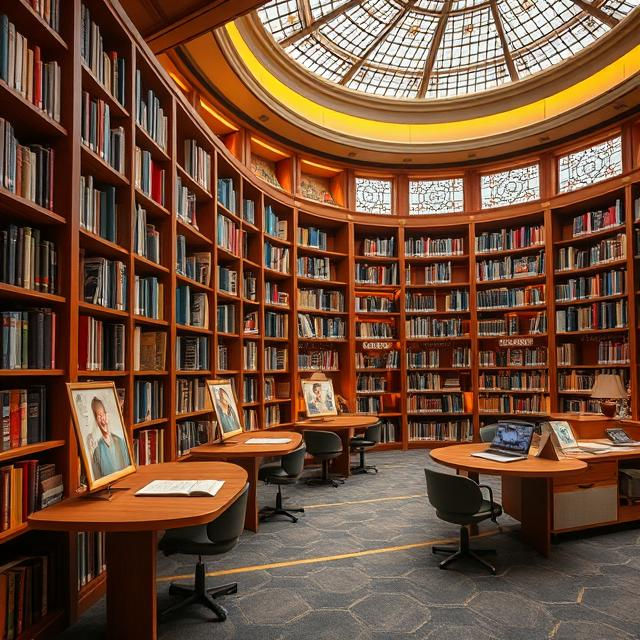THE IMPACT OF DIGITAL LIBRARIES ON ACCESS TO RARE AND HISTORICAL TEXTS
- DE MODE

- Jul 21, 2025
- 2 min read
ORIGINALLY PUBLISHED IN DE MODE
Article Published on: 21ST JULY 2025 | www.demodemagazine.com
Digital libraries have revolutionized the way we access rare and historical texts, making invaluable cultural and literary treasures available to a global audience. Traditionally, accessing such works required visiting specialized archives, universities, or museums—an option limited to a privileged few. With the rise of digital libraries, these barriers have been dismantled, democratizing access to knowledge and preserving texts for future generations.
One of the most significant impacts of digital libraries is preservation. Rare manuscripts, centuries-old books, and fragile documents are susceptible to deterioration. Digitizing these texts ensures their longevity while reducing the need for physical handling. Projects like Google Books, Project Gutenberg, and Europeana have scanned millions of works, creating accessible archives that protect historical content from being lost to time.

Digital libraries also enhance accessibility. Scholars, students, and enthusiasts from around the world can now explore historical texts from the comfort of their homes. What once required expensive travel or institutional access can now be achieved with a few clicks. For example, the British Library and the Library of Congress provide digitized collections of rare manuscripts, making them available to anyone with an internet connection.
Moreover, digital libraries often incorporate searchable databases and metadata, allowing users to quickly locate specific information within vast collections. Advanced tools, such as high-resolution imaging and text recognition, offer deeper insights into the physical and textual details of rare works, enabling more thorough research.
Additionally, digital libraries foster cross-cultural exchange and collaboration. By putting diverse historical texts online, they help scholars and readers understand global histories, literatures, and philosophies.
Ultimately, digital libraries have transformed the preservation, accessibility, and study of rare texts, bridging the gap between the past and the digital age while ensuring that historical knowledge remains alive and widely shared.



Comments